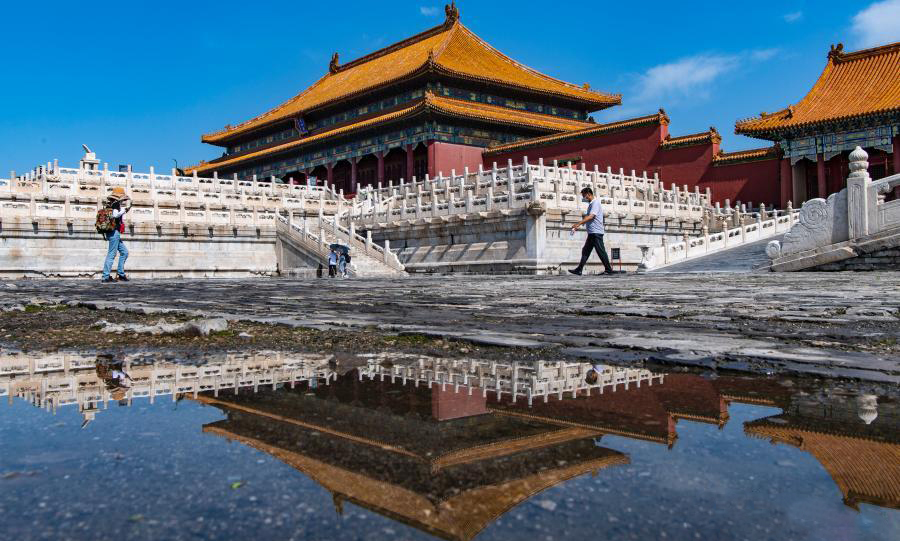Interview: Thai monetary policy normalization to be sooner than later, says central banker
BANGKOK, July 18 (Xinhua) -- Thailand's central bank governor Sethaput Suthiwartnarueput said a monetary policy normalization should be "sooner rather than later" and in a gradual manner to anchor inflation expectations without stymieing the country's economic recovery.
The Bank of Thailand (BOT) still needs to balance risks between growth and inflation, but with the economic recovery becoming more intact, the emphasis is now shifting more on inflation, Sethaput said in an exclusive interview with Xinhua.
"We expect inflation to come in at above 6 percent this year, well above our target range of 1-3 percent, and gradually get back into the range next year," he said.
The 6-plus percent rate would be Thailand's highest inflation growth in 24 years.
Surging energy and other commodity prices have pushed up consumer inflation in the Southeast Asian country to a 14-year high of 7.66 percent in June. Growth of the core inflation, which excludes raw food and energy prices, also accelerated to 2.51 percent in June, according to the Ministry of Commerce.
Although the headline inflation has been driven mostly by higher energy prices, it is starting to spread and there is a sign that the inflation engine is picking up momentum, Sethaput said.
To anchor the inflation expectations and ensure that a smooth economic take-off not to be derailed, he said the BOT must engage in a policy normalization "sooner rather than later."
"If we allow inflation expectations to start becoming unanchored, then instead of having gradual rate increases, we'll have to increase rates by even more later on, which is something we would not want to see and the costs on the economy would be much higher," he said.
The central bank has left the benchmark policy rate unchanged at a record low of 0.5 percent since May 2020 to support the pandemic-hit economy. It's widely expected the key rate would be raised at the BOT's next monetary policy committee meeting scheduled for Aug. 10, marking the country's first rate hike since late 2018.
Because of its reliance on tourism, the Thai economy was hit harder by the pandemic and thus recovering slower than other countries in the region, Sethaput said.
Tourism, which accounts for about 12 percent of Thailand's GDP, contributes to 20 percent of the country's employment, he said, expecting the kingdom to receive 6 million tourist arrivals this year, far below a peak of nearly 40 million in 2019 but improving from just 400,000 in 2021.
Thailand's GDP expanded 2.2 percent in the first quarter of the year. The BOT forecast that the Thai economy would rise 3.3 percent in 2022, with growth further picking up to 4.2 percent in 2023.
Photos
Related Stories
- China, Thailand ink agreement in cooperation to promote badminton
- Thailand, United States strengthen cooperation on supply chain, renewable energy
- China, Thailand vow to strengthen cooperation between legislatures
- Interview: China's stable growth helps buttress Thailand's economic recovery, says Thai scholar
- People enjoy annual int'l kite festival in Phetchaburi, Thailand
Copyright © 2022 People's Daily Online. All Rights Reserved.









